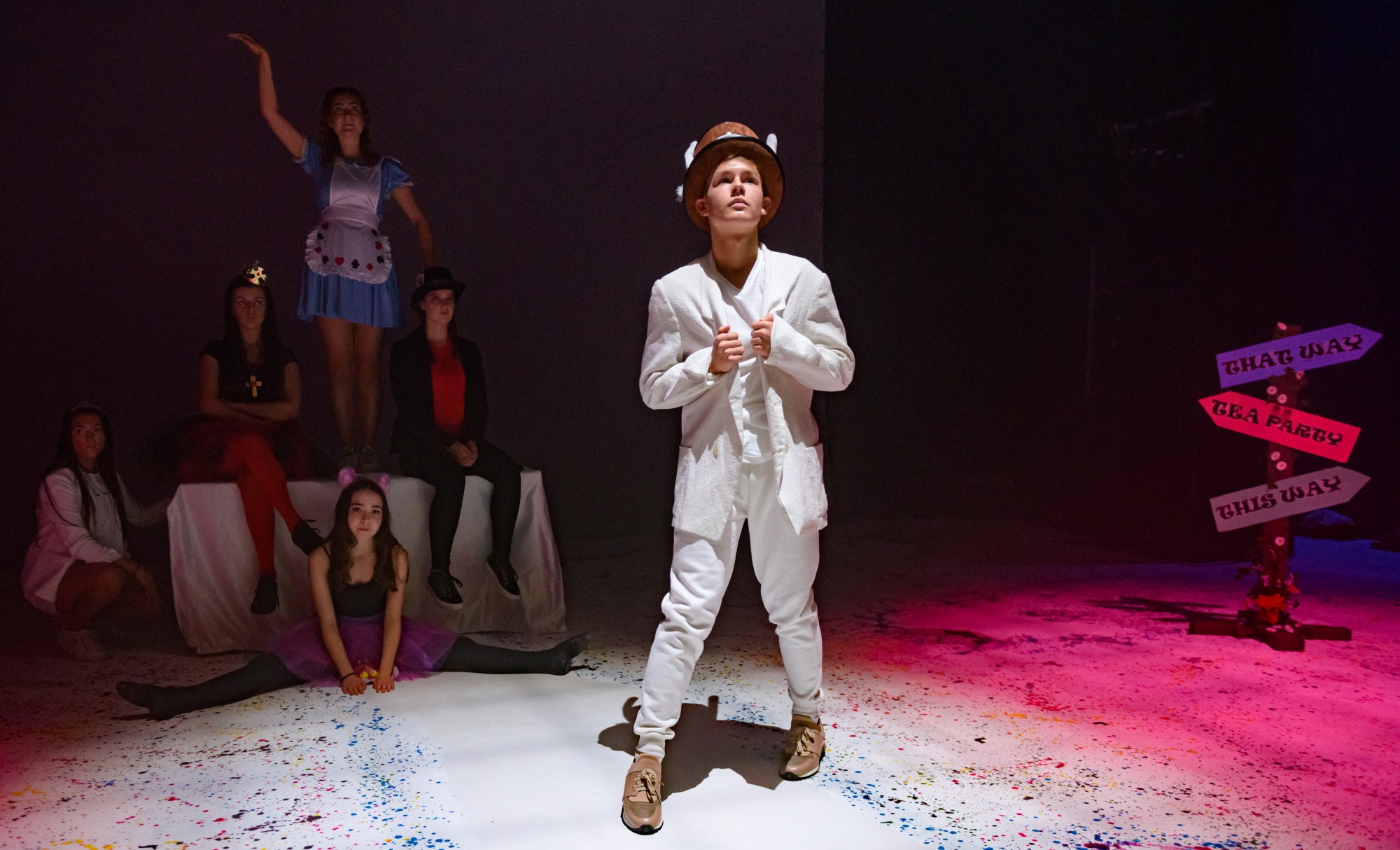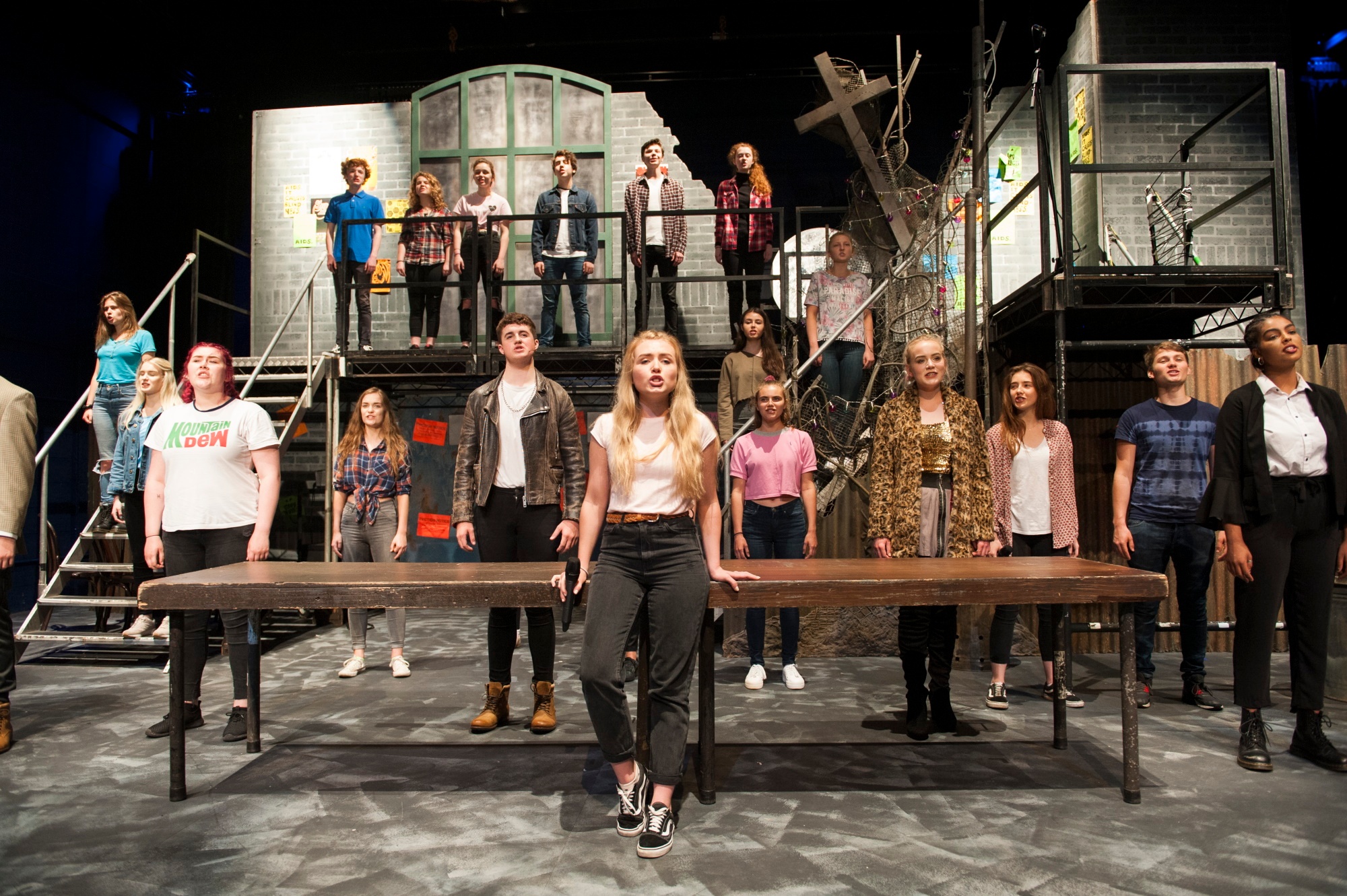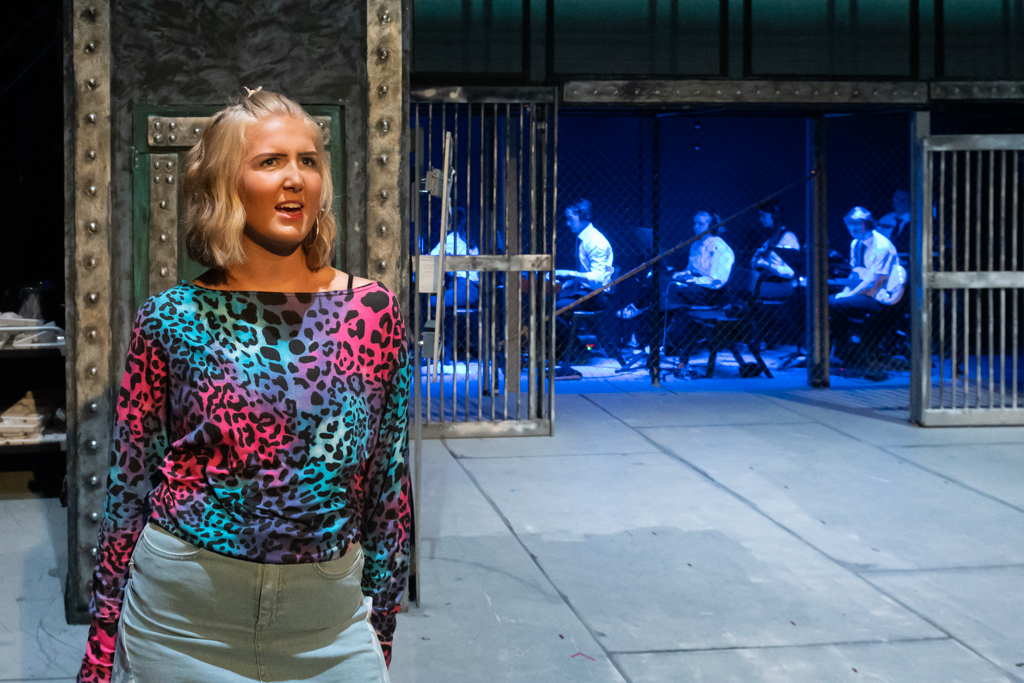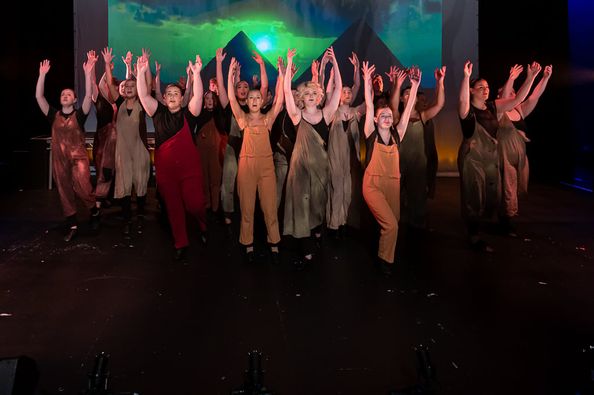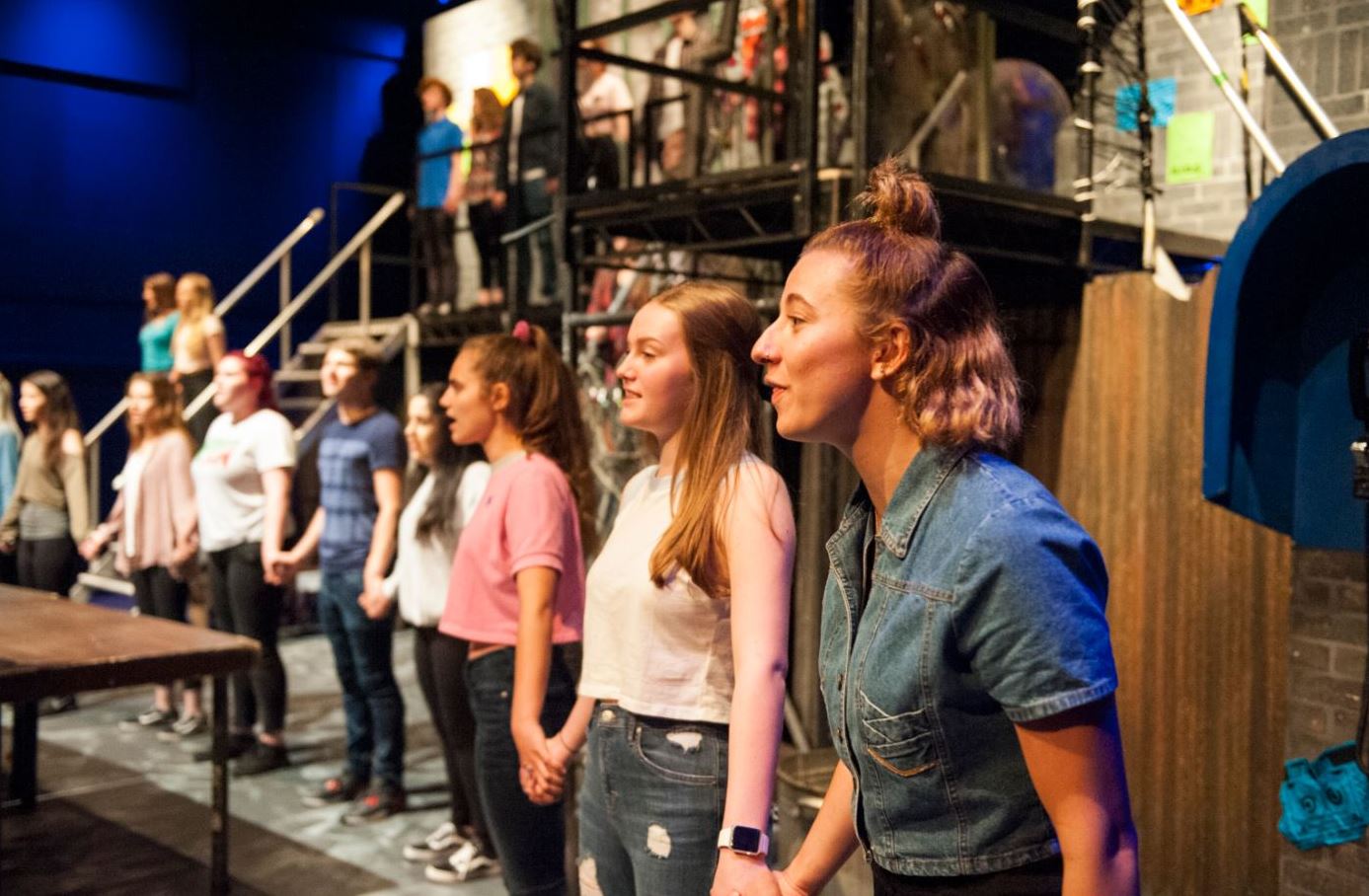Study
Musical Theatre
As a Musical Theatre student, you are likely to be energetic and creative - with lots of stamina, which is just what you need for our course. We’ll work on developing your versatility as you improve your acting, dance and singing skills and introduce you to the different career paths available in Musical Theatre. You’ll also discover what it’s like to work at a professional level by taking part in sessions with visiting professional performers, directors and choreographers.
Course overview
You study the three key aspects of Musical Theatre: acting, dancing and singing, across a range of musical theatre styles. Your first year is spent developing your skills and techniques in each aspect of musical theatre, while learning about the musical theatre industry. You have many performance opportunities at a range of venues, to a range of audiences, including a children’s theatre performance and a musical theatre showcase.
In your second year, you look at the history and context of musical theatre, ranging from the classics up to contemporary performance.
You also receive guidance on preparing a professional portfolio and for auditions for conservatoires, university and the musical theatre industry.
Your final project will be a full musical production that allows you to work with a live band and to collaborate with our Technical Theatre and Design for Performance students.
Course highlights
- Perform regularly in our 100- seat Willy Russell Studio, and other external venues.
- Participate in workshops and masterclasses with visiting professionals - past guests have included Gary Barlow, Danny Boyle and Stephen Fry and Bill Nighy.
- Experience regular trips to inspirational musical theatre productions.
- Collaborate with students from other disciplines - including actors, dancers and technical theatre and design students - to put on a range of performances throughout the year.
- Benefit from industry-experienced tutors who have a wealth of musical theatre knowledge and performance experience and are still active in the industry.

Skills to be developed
- Academic research and writing
- Acting Practitioners
- Acting Technique
- Audition technique and preparation
- Collaborative performance
- Creating a professional portfolio
- Dance Technique for musical theatre (different styles), including Ballet, Jazz, Tap and Musical Theatre
- Historical Context
- Vocal technique
What our students go on to do
Students who have graduated from the Musical Theatre course at LIPA Sixth Form College have gone on to study at:
- The Arden School of Theatre
- Arts Ed
- Guildford School of Acting
- Institute for Contemporary Theatre Manchester
- Leeds Conservatoire
- Royal Welsh College of Music and Drama
- University of West London
Enrichment activities
We offer a range of enrichment activities alongside your studies, which vary from year to year depending on our students' interests. Previous enrichment activities have included directing, scriptwriting, our weekly lunchtime gigs the Soundcheck Sessions, knitting club, theatre special effects makeup, LGBTQ club, choir and football.
Did you know?
- After only 6 weeks performing together our MT Students competed in the North West Strictly MT Competition and returned with a trophy, placing in the top two in their group category (containing 12 other competing teams)
- The Musical Theatre team love a flash mob and the group performed in venues such as Liverpool ONE, John Lewis and the Anglican Cathedral. Where will they appear next?
How do I apply?
The details of what applicants are asked to do can be found below, to help you prepare in advance of your audition and interview.
Auditions and interviews are held in February and March, and decision letters are sent out shortly afterward.
